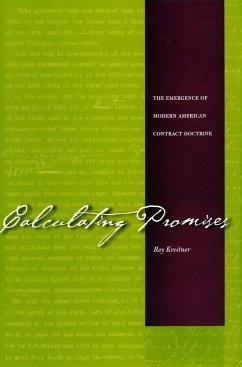This book is a history of American contract law around the turn of the twentieth century. It meticulously details shifts in our conception of contract by juxtaposing scholarly accounts of contract with case law, and shows how the cases exhibit conflicts for which scholarship offers just one of many possible answers. Breaking with conventional wisdom, the author argues that our current understanding of contract is not the outgrowth of gradual refinements of a centuries-old idea. Rather, contract as we now know it was shaped by a revolution in private law undertaken toward the end of the nineteenth century, when legal scholars established calculating promisors as the centerpiece of their notion of contract. The author maintains that the revolution in contract thinking is best understood in a frame of reference wider than the rules governing the formation and enforcement of contracts. That frame of reference is a cultural negotiation over the nature of the individual subject and the role of the individual in a society undergoing transformation. Areas of central concern include the enforceability of promises to make gifts; the relationship of contracts to speculation and gambling; and the problem of incomplete contracts.
Hinweis: Dieser Artikel kann nur an eine deutsche Lieferadresse ausgeliefert werden.
Hinweis: Dieser Artikel kann nur an eine deutsche Lieferadresse ausgeliefert werden.








